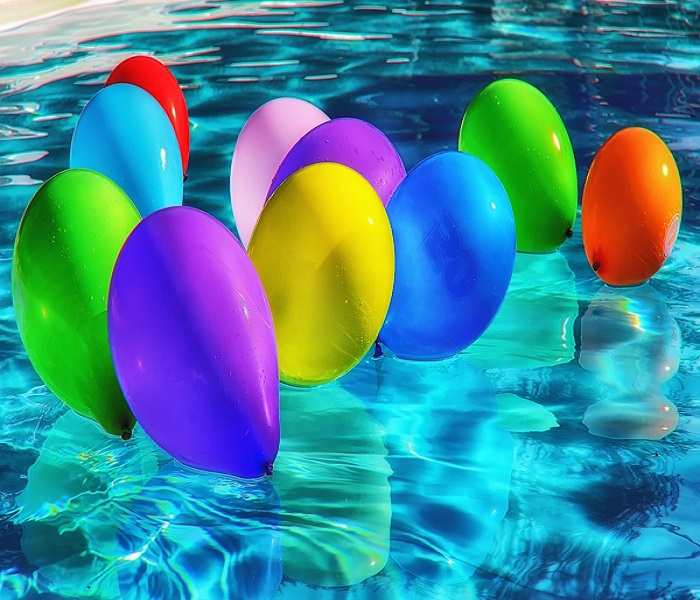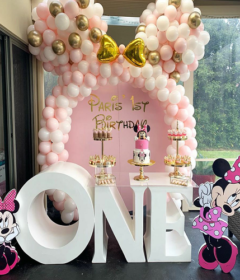How To Plan A Party (For Tweens)

Article provided by wikiHow, a wiki that is building the world’s largest and highest quality how-to manual. Please find author credits at the original wikiHow article on How to Plan A Party (For Tweens). Content on wikiHow can be shared under a Creative Commons License.
How To Plan A Party (For Tweens)
Your tween years are an important “rite of passage” of sorts – they’re a transitional age between childhood and being a teenager. This is where parties can start to get confusing. With all the new information about parties, as well as your developing independence, it can be tough to know how to plan a party. Don’t panic! It’s not too much different from having a party as a kid, and soon, you’ll be having a great party in no time.
Part I
Planning
1. Consider the basics of your party. What kind of party do you want to have? A classic choice for a tween party is a sleepover, but you may want to stick to the typical party that’s only a few hours long, or a pool party. Take into account any themes you may want to have, too; for example, a party in late October may be a good candidate for a Halloween or costume party, or you could plan a theme unrelated to the time of year, such as a sports party.
- You’ll also need to take into account what adult will be supervising the party; many parents will not let their child attend a party if there’s no adult supervising. A parent supervising the party is probably the best choice, as siblings over 18 may not pay enough attention.
2. Write a list of how many people you want to come to your party. Chances are, now that you’re older, you can have more people at your party than you used to. Invite friends that you have, and consider asking them if they have any friends they want to invite, too.
- Set a limit on how many “friends of friends” can be invited – too many people can pave the road for a lot of drama, and it’s much harder to host a party with a lot of people. Consider limiting the amount to one “friend of a friend” per person, or just not allow it at all.
3. Plan a date and time. Even if you are allowed to have parties on school nights, don’t! Most parents won’t let their kids out on school nights, so make it a Friday or Saturday night. Make the party at a time that suits your family. Pick a time for the party to start, as well, but make sure it gives the attendees time to get ready – you don’t want to have the party immediately after school.
- Plan an ending time, too. You’ll want a time for your guests to be picked up from the party so that everyone isn’t sitting around, awkwardly waiting for their parents.
4. Take into account where the party will be held. Depending on where the party is, you may have to make different considerations as to certain aspects of your party. For example, public places often need to be booked before having a party there, and some may have restrictions on things such as the amount of people or what can be brought to the place.
- If you want to have your party outside, consider having a backup plan if there is bad weather or problems with bugs.
5. Plan activities for the party. Parties usually don’t go as well as you might want if people are just left to sit and talk. Consider activities that fit the theme of the party; a sleepover may be a good place for a movie, a beach party would be a great place for a game of volleyball, and an outdoor party would be a nice place for using a rock-climbing wall or playing a game of frisbee.
- Make sure the activities make sense for the age group. At age eleven, a game of Pin the Tail on the Donkey doesn’t make sense for the vast majority of parties.
- Consider backup activities, too, in case people don’t like a suggested activity or an activity takes less time than anticipated.
6. Consider what food and drinks you’ll want to serve at the party. Pizza is a classic party staple, but you’ll need something other than a main course, and you may want to have a different type of “meal food”, too. Consider snacks such as chips, candies, or even fondue fountains; when it comes to drinks, consider soft drinks like sodas, lemonade, or fruit punch (but never bring in alcohol!).
- If you’re having a sleepover, you’ll need to consider what will be done for breakfast, too. Eating leftover chips or candy for breakfast probably isn’t the best choice. Consider things like bagels or pancakes that can be easily made or bought.
- Always take food allergies into account! You do not want a party to be ruined because somebody had an allergic reaction and had to go to the hospital. If you plan on serving food that has a common allergen (e.g. peanuts), make sure that the guests will have some way of knowing about the allergen (for example, putting a note underneath a food with nuts in it saying “contains nuts”).
7. Make your invitations. You can make them on the computer or buy them. If you make them, give them a special twist. For example, for a pirate-themed party, you could put them in the microwave to make them look dirty and old, or make the invitations look like a treasure chest with a flap for the lid to the chest. Include the following information on the invitation:
- Your name
- The time and date of the party
- The location of the party, including an address
- The theme of the party (e.g. pool party, costume party, sleepover)
- Contact information to RSVP
- What to bring, if applicable (e.g. presents, sleeping bags)
Part II
1. Hand out your invitations at least one week before your party. You want the guests to have time to RVSP. A good window of time is two weeks before the party, which gives people enough time to plan ahead and buy or put together anything that they may need.
Hand out invitations in person; texting them or distributing invitations via social media can be cause for trouble among those who didn’t get invited, especially if you’re a popular student.
2. Buy supplies. After everyone has responded to the RSVP, buy your supplies and decorations. Get whatever you need for the party, its activities, and so on. Be sure to buy enough for every person, and maybe even a bit extra if you anticipate it being needed.
- Buy an extra of something important, in case somebody forgets to bring one; for example, if you’re doing a craft project that asks for people to bring plastic jars, buy a plastic jar in case someone doesn’t have one at the party.
- Be sure to get plastic plates and cups, too. You don’t want to realize you don’t have anything for your guests to use for their food!
3. Buy food. A few days before the party, purchase any packaged foods and store them for the party. Make sure to buy drinks, too; make a list of the foods and drinks you need, and check them off your list as you go. If, during the party, you’ll be making a recipe, make sure to get enough of the ingredients, too!
- If the meal you want to serve is something like pizza or takeout, order it during the party, not before. It’ll get cold otherwise, and cold food isn’t good food in the eyes of a party meal.
4. Decorate the party area. On the day of the party, do what you need to do to decorate. Hang up wall or ceiling decorations, put out supplies for any activities you plan to do, and so forth. Make sure everything is fully prepared; you don’t want to be rushing to bring out decorations or activities!
- Some public party areas will decorate the area for you, but others won’t. It varies from place to place. If you do have to decorate the area yourself, make a game out of doing it! And remember, if you can’t reach something, get help from an adult.
5. Be prepared for guests to arrive. The day of the party, get ready for guests to arrive; greet them as they arrive so that it’s more personal. Ease them into any activities that are already available, such as multiplayer video games. Be friendly, so that your guests are ready to have a fun party – and that everyone, you included, can have fun!
Originally published on Wikihow. Visit the site for more How To articles.


